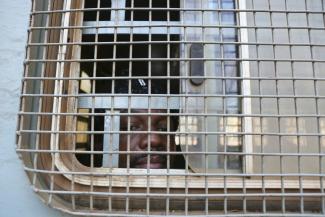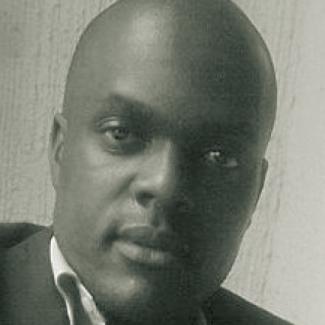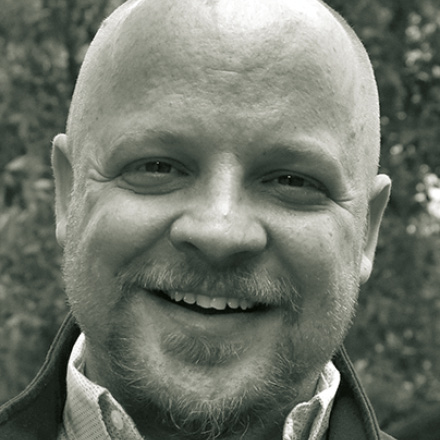Prison conditions
D+C correspondent locked up in Zimbabwean prison
 picture alliance / AP / Tsvangirayi Mukwazhi
picture alliance / AP / Tsvangirayi Mukwazhi
The first sign of trouble came when two colleagues from The New York Times, Christina Goldbaum and Joao Silva, arrived in Zimbabwe on 5 May 5 2021. They were detained for hours after their flight landed in Bulawayo, Zimbabwe’s second largest city. I waited outside with their press passes, which I had obtained from the Zimbabwe Media Commission (ZMC), the regulatory body that issues press credentials.
After a long delay they were allowed into the country. But three days later they were detained again. Zimbabwean immigration officials told them there were problems with their press credentials, and also that certain parts of the government were not happy about their presence in Zimbabwe. The two were swiftly deported. In a way they were lucky. Because then the officials turned their attention to me.
Questioned by the police
About three weeks later, on26 May, three detectives from the Anti-Terrorism Unit at Harare’s Central Police Station appeared at my house. They asked why I had side-stepped the Ministry of Information to get press passes for the New York Times journalists. “We want to know how your colleagues got accreditation,” one of the detectives said.
I had no choice but to go to the police station with them. There, the questions continued: “Whom do you know at the ZMC?”, the detectives asked. “And why do you work for The New York Times instead of The Herald (a state-controlled newspaper)?”
I answered their questions, but nonetheless was compelled to spend the night at the police station. I shared a cell with five other detainees. The cell had a stench of urine. Despite the cold, I was forced to remove my shoes, socks, shirt and sweater and keep on only my jacket and trousers. That night I slept on the concrete floor, as all available blankets were taken. I had to press myself close to other inmates for warmth.
Unexpected transfer to Bulawayo
The following morning, instead of taking me to the Magistrate’s Court in Harare for an initial hearing, the detectives took me to Bulawayo, more than 400 kilometres away, where the case would be heard. Also arrested and taken to Bulawayo was my co-accused, Thabang Manhika, a staffer at the ZMC, who had processed the press passes for the New York Times journalists. “This is good for us; we will get a per-diem payment (an allowance for travel days),” one of the detectives remarked to his colleagues at the police station.
My unexpected transfer to Bulawayo came as a shock to my wife, Purity, as well as to a throng of journalists waiting outside the Harare court expecting to report on the case. The reporters had been alerted by Christina Goldbaum and by a local journalist, Hopewell Chin’ono.
At Bulawayo Central Police Station, I was held in a small cell with 17 other detainees. I slept on a concrete floor without blankets, with a stench of urine and human waste choking me. Unfortunately for me I was positioned right next to the toilet. Its foul odour was pure hell.
“A threat to national security”
The next day, 28 May, I appeared in court in Bulawayo. Magistrate Rachel Mukanga set a date for a bail ruling on 31 May and ordered that I be kept in prison until then. On 31 May, the court denied bail and ordered me back to jail until 10 June.
Mukanga had decided I was both a flight risk and a “threat to national security”. According to Mukanga, I had violated Zimbabwe’s Immigration Act by helping the New York Times journalists to get media accreditation. She added that Zimbabwe’s “sovereignty was undermined because foreign journalists interviewed Zimbabweans without permission from the Minister of Information”.
My lawyers filed an urgent application to the High Court to get me out on bail. While that application was pending, I was held in the Bulawayo Central Prison, a 124-year-old facility once known as Grey Remand Prison because of the colour of the stones used to build it.
My cell, which I shared with 25 other inmates, had two tiny windows covered with rusty wire nets and was secured with a heavy, hardwood door. This cell, too, has a stench of urine and faeces from the toilet inside. Making matters worse was the smoke from the smuggled cigarettes that other inmates smoked.
Bitten by lice
For my first three days at Bulawayo Central Prison I had no blanket of my own; there were not enough to go around. A fellow inmate, Onias Mavunge, passed me a badly torn and lice-ridden blanket, but I declined and slept uncovered directly on the concrete floor. Unfortunately the lice found me anyway.
Fighting off the lice was a constant occupation. Every day after cells were opened, inmates would stand outside and try to pick the lice off their clothes and blankets. It was a losing battle. Inmates often scratched themselves where they had been bitten by lice.
My wife travelled from Harare to see me. Through prison officials, I let her know I needed a blanket. With the help of my lawyers, she got permission to bring one in.
For breakfast we received plain porridge without sugar or salt. Lunch – served at 3pm – was boiled dried spinach and other vegetables and boiled beans without salt or cooking fat. In less than three weeks at Bulawayo prison, my weight went from 78 to 71 kilogrammes.
Violence in prison
I had a bad encounter with a female medical prison official who slapped me heavily across my face while testing me for Covid-19. I had shifted in the chair and she was angry about that and slapped me.
One prison official asked inmates for patience. “We do not have adequate blankets and our diet is not up to scratch,” he said. “This is because our economy is not performing well. When the economy gets better, we hope everything will improve.”
On 14 June, my wife got a message through to me that the Bulawayo High Court had agreed I could be released on bail. But some paperwork was still needed. My wife and several journalists stayed outside the prison entrance during the night of 14 June, anticipating my release. But I had to stay yet another day and night. On the morning of 16 June I was finally released on bail.
I have my freedom back due to the efforts of many people. My lawyers put up a good fight. Family and friends were actively involved in the fight. The New York Times, The Toronto Globe and Mail and diplomats and media colleagues all over the world had put pressure on the Zimbabwe government. Other inmates living in unacceptable conditions do not have those advantages.
In February the trial against me will resume. I hope in the end, media freedom will win, and my work as a journalist will be upheld and respected by the authorities.
Jeffrey Moyo is a journalist based in Harare.
moyojeffrey@gmail.com

